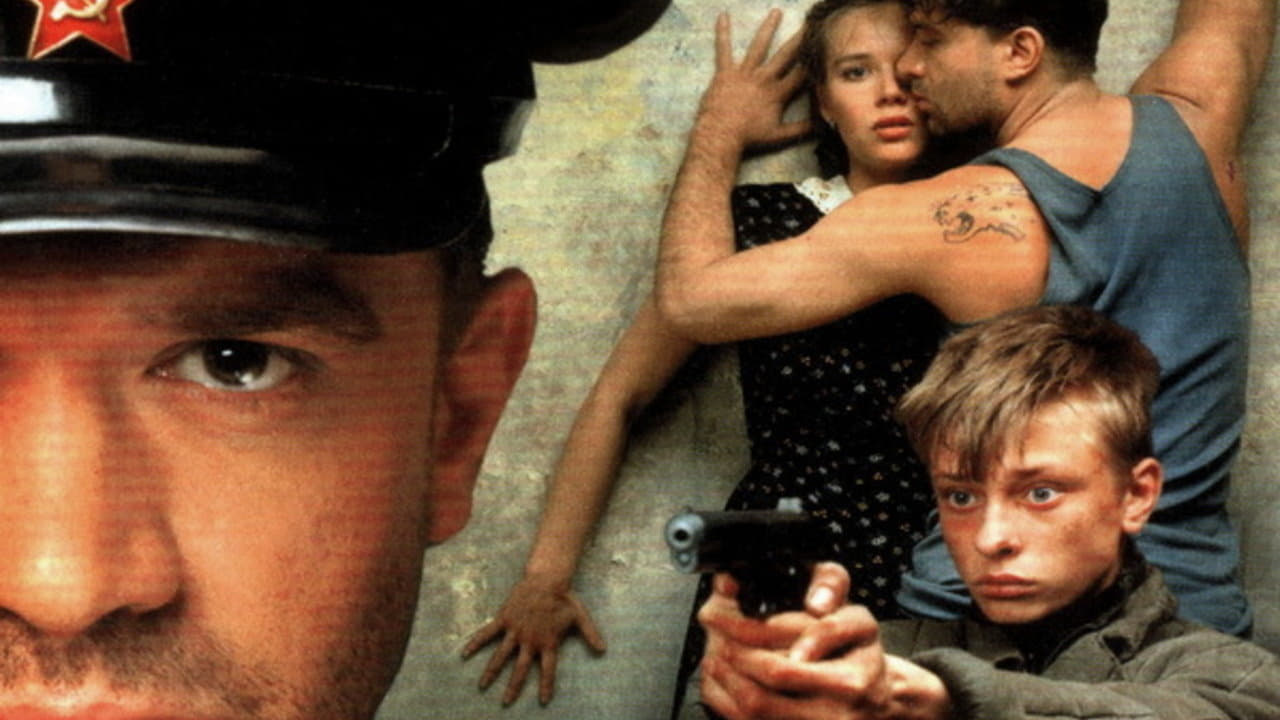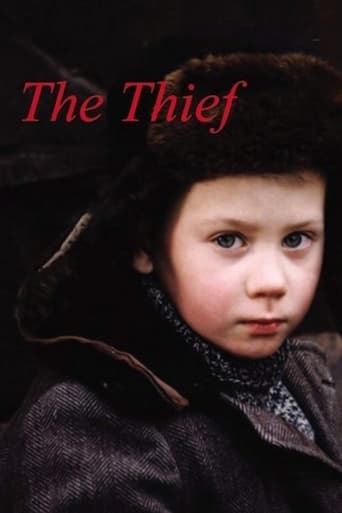

My summary isn't meant as criticism--it's just what you'll see when you watch this film. It is well made and I admired some of the acting-- such as the nice performance the director got out of a little boy. But the film is such a downer I cannot imagine it having any widespread audience.The film begins in the Soviet Union just after WWII. A woman collapses and give birth along a muddy road. The scene then skips ahead six years. The widow mother and her boy are on a train--- heading nowhere in particular. On the train, she meets a dashing soldier and he sweeps her off her feet. Next they're moving into a crummy apartment and soon she realizes that he is NOT a soldier but a sociopath who steals without remorse. But the mother is a strongly dependent personality and she refuses to leave the bum and the trio travel across the country stealing and living irresponsible lives. What's next? See the film...just understand it won't get any prettier!I admire the film for being daring and different. I would assume such a picture never would have been made in the old Soviet Union and the film is clear indication of changing times and attitudes. Worth seeing if you love international films, my only complaints about the film are that it don't think it was so good that it should have been Oscar- nominated plus it was SUPPOSED to be told from the child's viewpoint--yet several scenes occurred where the child was not present--so HOW could the kid have known what happened? Decent, unpleasant and unique.
... View MoreThis Russian flick painfully captures the stark realities of Soviet life as felt by the commoner. People are forced into communal housing where privacy is unknown. Likewise they are forced into the unthinkable in order to exist. The paternal prevarication that Stalin strangles his people with becomes the emblem of this story, conflicts and contradictions that must be faced and coddled in order to survive. The unjust notion of love is seen here as an unconscionable glue, binding our characters together for better or worse, and for worse is the usual case in Soviet Russia. The acting was solid on all accounts, from the piercing emanations of the "heroic" soldier to the open-hearted stare of the mother's "squirt" of a son. Though the production values are occasionally weak, this only adds to the desperation that has become the permanent guest of this expansive land. Further explication of this flick's special qualities would be a fruitless affair as its many special attributes must be seen to be appreciated. Merci beaucoup.Genruk of Evil Eye Reviews
... View More"Vor" (called "The Thief" in English) portrays a widow and her son hooking up with a soldier in the Soviet Union in the early '50s, but all is not what it seems. That's the straight-forward plot, but there's something else here: fatherlessness. That has been a common theme in many Russian movies ("Brother", "The Return"). I'm not totally sure why, but there are other things here. The soldier likes to think of Stalin as his own father, and even has a picture of the dictator tattooed on himself (you must realize that Stalin tried to make himself look like the father of the country).Maybe we can't determine what exactly this movie is trying to say, but it is still a great movie. Mind you, this isn't a movie for the easily disturbed.Oh, and the mother is kinda hot.
... View MoreThis film is a great example of excellent Russian drama. It is superbly and artfully done with excellent scenes, cinematography, acting, etc., yet it is unrelentingly harsh and gloomy. There is barely a spot of happiness or hope throughout, hammering the viewer with the harshness of a hard life in a troubled world. Things start out bad and stay that way through the end since the woman's choices only alter the details of her problems without ever improving her lot. This is, in my experience, very emblematic of a particular outlook on the world. It is a notion of a harsh world that is really beyond our control and that, despite our efforts and our choices, we are in fact powerless to improve. This is a common theme in Russia, a country whose land and people have made great achievements, yet at different times have sacrificed much without any real benefit in return and as a result suffered so much more than most westerners can even comprehend. The film presses that home with the usual Russian knack for artistic excellence, itself further highlighting the strange dichotomies of this land.In the end, this film leaves the viewer emotionally battered, but thoroughly satisfied at having just seen a grimly beautiful and outstanding film.
... View More